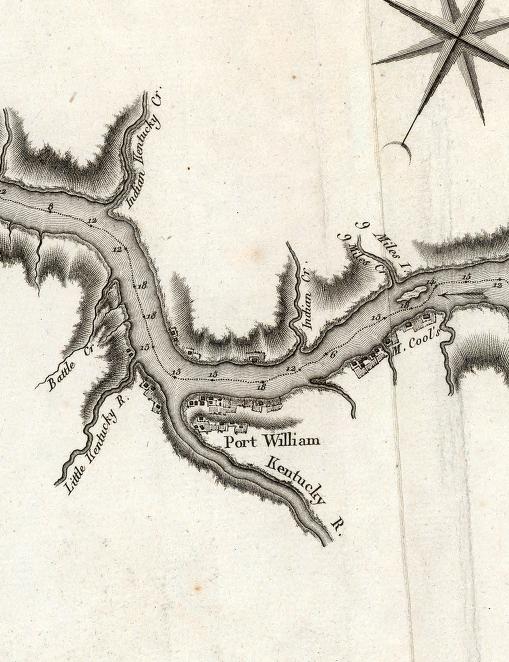It is more an accident than anything else that Madison did not go down in history for the second most high-profile duel in American history. The first, of course, was the duel in which vice president Aaron Burr killed former secretary of treasury Alexander Hamilton.
The planned faceoff between then-Senator Jesse Bright and prominent Madison lawyer Joseph G. Marshall would have been almost as noteworthy and the antagonists tried hard to make sure it happened. It was only through the intervention of their friends, which included some of the nation's most prominent men, that it was averted at the last minute.
Bright and Marshall had clashed repeatedly. Bright owned slaves while Marshall, who inherited slaves and set them free, was a champion of abolition. Marshall, a Whig and later a Republican, would have become United States senator from Indiana, except that Bright, a Democrat, outmaneuvered the Republicans in the Indiana legislature.
They had one thing in common besides ambitions--both were hotheads. Once, at a trial in Charlestown when a Judge Otto called him a liar, Marshall “knocked him down. Judge Otto arose, and, coming at Mr. Marshall" in a belligerent manner, was knocked down again." Marshall later apologized. And in another episode, he got angry and broke down a door.
On the other side, Bright reportedly knocked down the doorkeeper of the House of Representatives for what was termed "an inconsiderable offense." Bright also used invective freely. On April 27, 1857, he wrote to R.M. T. Hunter, chairman of a House committee, demanding the Hunter fire the committee's clerk named Henrick, for a letter the latter had published in the New York Herald. "He is a liar, slanderer, and within a few days past, has proven himself a coward" and a few words later dismissed him as a "lying slandering coward" Bright said. The charge of cowardice suggests Bright had challenged Henrick, who had declined, although it may have been Bright was simply liberal with his epithets.
The personal animosity led Marshall to plan killing Bright. In what sounded like a Wild West showdown in the streets, Marshall once purchased a bowie knife, which he put in his pocket. He walked Madison’s Second Street between the post office and West Street from 10 a.m. until 10:30 a.m., knowing that Bright customarily picked up his mail at 10 a.m. Bright, however, changed his routine that day. Marshall was quoted as saying: “Had he come I should have attacked him and killed him, if I could. I knew he was always armed, so I would not be taking him at a disadvantage.”
The dispute spiraled into a duel challenge. The two agreed to meet on an island in the Ohio River, placing it in Kentucky, probably because the Indiana constitution prohibited dueling. Their entourage included leading Madison merchants and prominent public officials and future leaders. One of them, Madison’s William McKee Dunn, a Congressman and later Judge Advocate General, provided many of the details.
The weapons of choice were rifles at 50 paces. Bright and his group stayed at the Gault House while Marshall and his contingent at the Louisville Hotel. Marshall was so determined to shoot it out with Bright that when police came to arrest him, Marshall said his brother, the Rev. Samuel Marshall, who came to stop the duel, was Joseph Marshall and the police led the minister away. The attorney was later corralled and their friends negotiated a settlement.
Bright never got that close to a shoot-out again. But Jesse wasn't through. He got into a fight in a courtroom in 1853 and was fined along with others; an incident reported by author Francis Lieber an article entitled “The Character of a Gentleman.” And on Sept. 16, 1853, Bright wrote to his friend and financial backer W.W. Corcoran, apparently preparing for trouble.
"I am unwilling to trouble you about my domestic affairs," Bright wrote "for I have already been the reception of favors of your hands that must necessarily go unrequited through life; yet I will venture to enquire whether you know of a Duelling [pistol] that I can get and suitable for a humble disciple of the immortal 'Franklin Pierce.' I hope you may have one to suit me, but if not, pardon me for asking you to engage one for me. I must have one now."


No comments:
Post a Comment